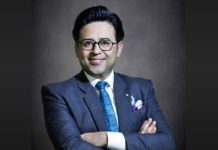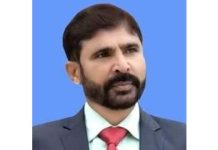By Sadaf Noreen Awan
Zohran Mamdani’s ascent from a grassroots state legislator to the mayoralty of New York City represents far more than a personal triumph. At just 34, the Democratic Socialist’s victory over former Governor Andrew Cuomo and Republican Curtis Sliwa heralds a generational transformation a reimagining of power, politics, and public purpose in America’s most emblematic metropolis. His election signals not merely a change in leadership, but a redefinition of what leadership can mean in an era increasingly shaped by activism, inclusion, and civic imagination.
Born in Kampala and raised between continents, Mamdani embodies a rare synthesis of intellectual and cultural inheritance. His mother, a filmmaker, and his father, a renowned academic, cultivated in him an instinctive curiosity about justice, identity, and the stories nations tell about themselves. Around the family dinner table, cinema and scholarship intertwined producing a voice both cosmopolitan in scope and deeply attuned to the lived struggles of urban life. That global consciousness now animates his local politics, turning the pulse of New York’s neighbourhoods into a conversation about the moral architecture of governance itself.
Unlike many of his contemporaries, Mamdani defines ambition not through ideology, but through tangible interventions. His platform fare-free or reduced-cost public transit, expanded childcare access, strengthened tenant protections, and experiments in city-owned essential services reads less like radical theory and more like practical urban relief. To him, progressivism is not a posture, but a set of measurable reforms designed to make one of the world’s most expensive cities more liveable.
Equally transformative has been his campaign’s communication model. Eschewing traditional machinery, Mamdani’s team weaponized digital fluency: short-form videos, social media explainers, and participatory livestreams built a movement that felt both accessible and authentic. This strategy, rooted in the aesthetics of transparency, resonated with younger voters disillusioned by establishment politics. It also revealed a larger shift where political storytelling, once confined to the campaign trail, now unfolds in the participatory theatre of the internet.
Yet Mamdani’s rise has not been without turbulence. His outspoken solidarity with Palestine, and his unflinching criticism of Israeli government policies, catapulted him into the national spotlight. To some, his rhetoric epitomized moral courage; to others, it crossed lines of diplomatic prudence. The controversy reached fever pitch when a viral clip of him vowing to arrest Benjamin Netanyahu if the Israeli prime minister visited New York became a political flashpoint. The episode underscored both the power and peril of speaking in moral absolutes in a media ecosystem engineered for outrage.
Predictably, national figures sought to recast a municipal contest as a battleground in America’s culture wars. Conservative commentators, including the former president, sought to brand Mamdani’s victory as the embodiment of a radical leftward drift. In doing so, they transformed local governance into a symbolic referendum on the future of progressive politics itself. The ensuing polarization made clear that city hall can no longer be insulated from the gravitational pull of national division.
Mamdani’s identity as a Muslim of African and South Asian heritage has also shaped public perception of his leadership. In post-9/11 America, where Islamophobia has often shadowed civic life, his insistence that security and inclusion are mutually reinforcing principles has redefined debates once mired in suspicion. His credibility on issues of rights-based policing, community oversight, and civic belonging stems not from abstraction, but from lived experience. For many supporters, he embodies the very pluralism his city aspires to defend.
On a structural level, Mamdani’s rise illustrates the evolution of American urban politics. The old engines of influence party bosses, corporate donors, and tabloid endorsements are giving way to movements built on micro-donations, digital organizing, and narrative charisma. The porous boundary between local and national discourse means that municipal campaigns are now fought not just in borough halls, but in hashtags, podcasts, and news cycles that span continents.
The challenge ahead will be translating insurgent energy into administrative competence. Should Mamdani deliver visible results affordable childcare, cheaper transit, and municipally driven innovation he could craft a durable model of municipal socialism fit for the 21st century. But should his tenure be consumed by ideological skirmishes or managerial gridlock, it may reinforce doubts about whether moral clarity alone can govern a city as vast and volatile as New York.
In truth, Mamdani’s victory symbolizes something larger than a political realignment. It represents the emergence of a transnational ethic that binds justice at home with dignity abroad. His story resonates across continents from South Asia to the African diaspora as a testament to the idea that empathy, digital literacy, and civic courage can coexist.
To conclude, in a time when politics is often defined by fear and division, Zohran Mamdani offers a counterexample: a vision of leadership rooted not in dominance, but in solidarity. His journey from Kampala to City Hall reminds us that the moral geography of the modern city extends far beyond its skyline which reaches outward, toward a global community still learning how to govern with both conscience and imagination.
For Pakistan, Mamdani’s story is a reminder that genuine political renewal begins with moral courage, youth engagement, and a politics of service rather than spectacle. His success shows that empathy, inclusivity, and grassroots participation are not weaknesses but the foundations of enduring legitimacy. If Pakistan’s emerging leaders can channel their energy toward public welfare and principled governance, they too can rebuild trust in democratic institutions.
And for democracies around the world, the lesson is equally clear: the future belongs to those who can combine digital fluency with ethical conviction, who can connect local struggle with global solidarity. In an age of disinformation and division, leadership that listens, learns, and leads with humility may yet prove the most revolutionary force of all.

















